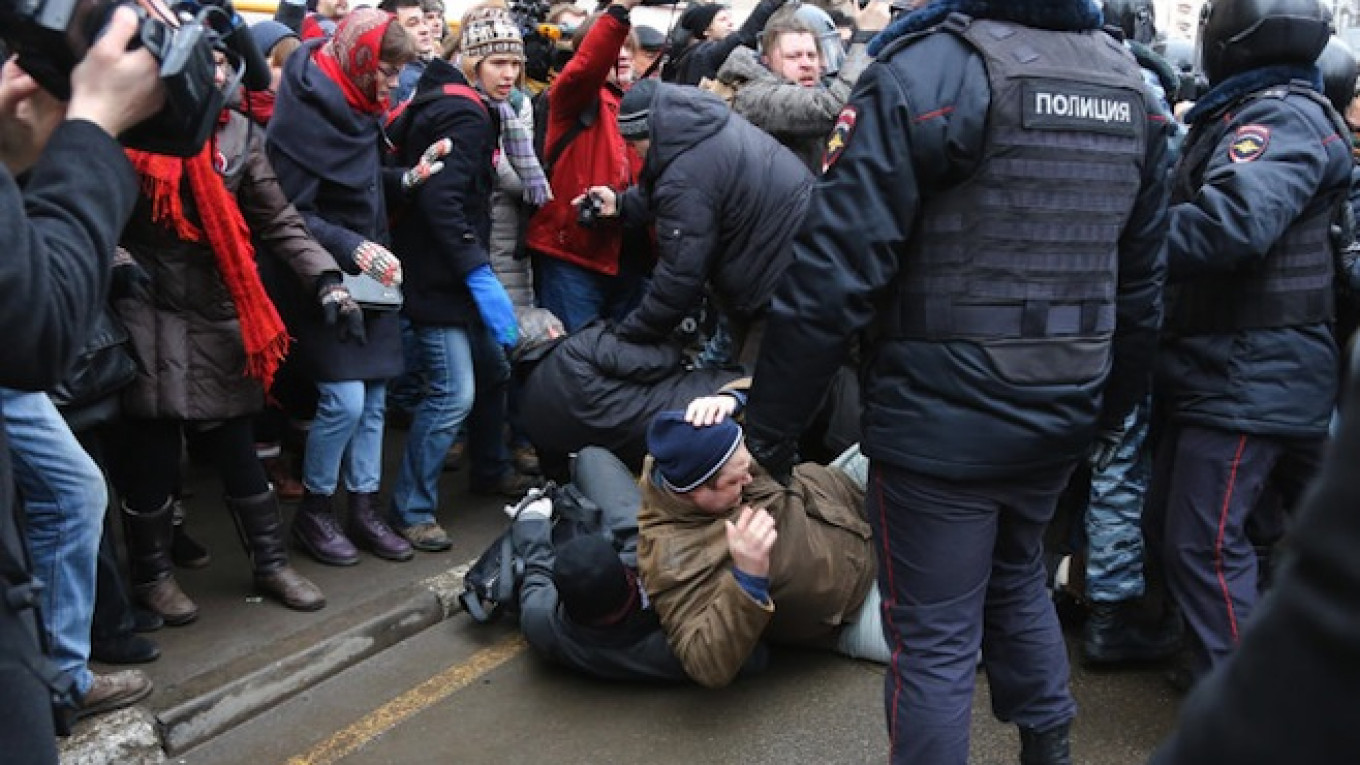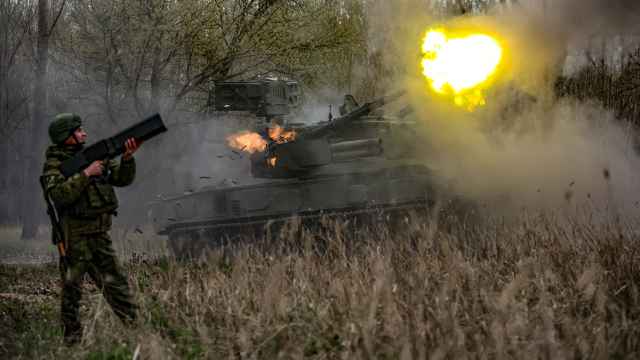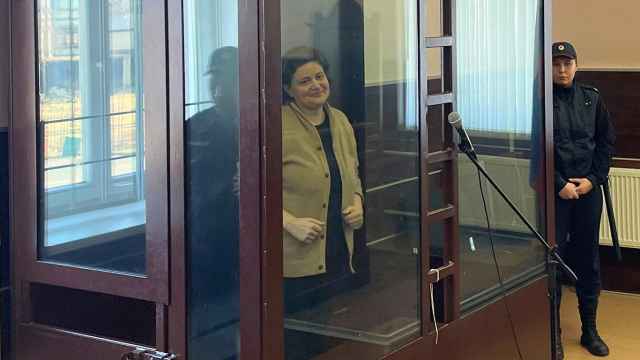Troops from Russia, Belarus and Serbia will practice fighting anti-government protesters — such as those who overthrew the Moscow-backed government in Ukraine last year — during joint exercises, a senior Russian military commander said.
The training will take place outside the southern Russian city of Novorossiisk in early September, the commander of Russia's airborne troops, Lieutenant General Vladimir Shamanov, was quoted as saying Sunday by the TASS state news agency.
Troops will practice joint efforts “on discovering and eliminating the staging areas for illegal armed formations,” he was quoted as saying.
Earlier this year, Russia's Interior Ministry troops held large-scale exercises around the country, aimed at drilling soldiers to respond to the “events that took place in recent past in one of the neighboring countries,” in the words of interior troops spokesman Vasily Panchenkov.
Though he did not specify which country he was referring to, his statement was widely interpreted as referring to Ukraine, where pro-European protestors took to the streets early last year to successfully topple Moscow-backed Ukrainian President Viktor Yanukovych.
These events sparked fears of a similar scenario in Moscow, where authorities have repeatedly warned that so-called color revolutions — popular protests that have sparked up in numerous capitals throughout the post-Soviet space — are a threat to stability in Russia.
Moscow used the overthrow of former Ukrainian President Viktor Yanukovych during the protests — known as Maidan — as a pretext for its March 2014 annexation of the Crimean Peninsula on the Black Sea.
In Russia's account of the events, the move was designed to protect the rights of Russian speakers in the region from a radical pro-fascist regime in Kiev, which Moscow says took power after Yanukovych's ouster.
Belarus, one of Moscow's few remaining allies in Europe, has expressed reservations about Russia's annexation of Crimea. However, Minsk has been careful to avoid antagonizing Russia, its major trading partner.
Belarussian President Alexander Lukashenko criticized Ukrainian forces after Crimea's annexation for not doing more to defend their borders, and said that he would personally take up arms to fight for his nation's territorial sovereignty if it was challenged.
Meanwhile, Serbia, which is in the process of the accession to the European Union, but also has close ties with Russia, has come under fire for its planned participation in the military exercises.
The drill would “send a wrong signal,” European Commission spokesperson Maja Kocijancic said, the Belgrade-based Beta news agency reported earlier.
A Message from The Moscow Times:
Dear readers,
We are facing unprecedented challenges. Russia's Prosecutor General's Office has designated The Moscow Times as an "undesirable" organization, criminalizing our work and putting our staff at risk of prosecution. This follows our earlier unjust labeling as a "foreign agent."
These actions are direct attempts to silence independent journalism in Russia. The authorities claim our work "discredits the decisions of the Russian leadership." We see things differently: we strive to provide accurate, unbiased reporting on Russia.
We, the journalists of The Moscow Times, refuse to be silenced. But to continue our work, we need your help.
Your support, no matter how small, makes a world of difference. If you can, please support us monthly starting from just $2. It's quick to set up, and every contribution makes a significant impact.
By supporting The Moscow Times, you're defending open, independent journalism in the face of repression. Thank you for standing with us.
Remind me later.






